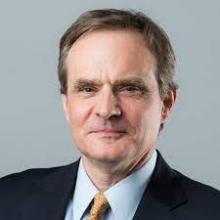You are here
Controlling the supreme court of finance
Jun 06,2018 - Last updated at Jun 06,2018
WASHINGTON, DC — There has been a great deal of concern recently about potential action by the US Congress to roll back the 2010 Dodd-Frank financial reforms, enacted in the wake of the 2008 crisis. In the end, while the Republican-controlled House of Representatives wanted a broad repeal, the Senate could be persuaded only to support relatively minor relaxation of the rules for small and medium-size banks. Unfortunately, given the politics of finance in the Trump era, this does not mean that the financial system will remain relatively safe.
President Donald Trump has a broad deregulation agenda, supported by House and Senate Republicans. Most of the key powers to regulate finance have already been delegated to the Federal Reserve — ironically by the Dodd-Frank legislation itself. And the president appoints the people who have complete control over regulation at the Fed. This is a dangerous combination.
Trump does not adhere to some standard conservative positions, like favoring free trade. But he knows very well what he wants with regard to the relationship between government and business: he wants the government to stop telling business what to do. On this issue, the president stands in a direct line of ideological descent from Ronald Reagan, who strongly believed that government was the problem.
Historically, Congress set financial rules and the Federal Reserve, along with other regulators, decided on implementation. In the decades leading up to the crisis of 2008, there was a broad bipartisan consensus in favor of allowing large financial firms to do as they saw fit. That included borrowing more and running up their debt relative to the size of their shareholder equity. The reasoning, which was fully endorsed at the Fed, was that such large firms — with assets in the trillions of dollars, employed smart people who could figure out how to manage highly leveraged balance sheets safely.
In September 2008, the wave of failures and near-failures at global banks, and insurance companies and mutual funds, demonstrated that this view was deeply mistaken. But the political system’s overall response was paradoxical. Instead of stripping powers from central banks, the Federal Reserve, as well as the Bank of England and the European Central Bank, became much more powerful.
There were two reasons for this outcome. First, central banks had the tools — cheap credit and expansionary monetary policy — necessary to avert a deeper crisis. Second, modern finance is far too complex and evolves too fast for any piece of legislation to address fully. Someone has to be in charge of oversight in a more detailed way. The crisis damaged the Fed’s reputation, but all plausible alternative regulators looked worse. So the Dodd-Frank legislation ended up granting even more power to the Fed, making it in effect the supreme court of finance.
In his important new book, “Unelected Power: The Quest for Legitimacy in Central Banking and the Regulatory State,” Paul Tucker, a former deputy governor of the Bank of England, traces this story and its implications more deeply. As Tucker explains, the increased concentration of power in the hands of central banks is not limited to the United States — the United Kingdom and the eurozone confront a version of the same issue. I am an unpaid member of the Systemic Risk Council, which is chaired by Tucker.
When a political party seeks to advance a broad ideological agenda and there exists a Supreme Court, the smart political strategy obviously is to appoint people to that court, the Board of Governors of the Federal Reserve System, in this case, who will implement the party’s programme.
During the Obama administration, the Fed became clearer-thinking and more effective on financial regulation. Governor Dan Tarullo sensibly weakened the jurisdiction of the Federal Reserve Bank of New York, which had become largely captured by big banks. Chair Janet Yellen was acutely aware of the problems that result from unregulated finance. Governor Lael Brainard was also very supportive, as was Sarah Bloom Raskin before she became deputy treasury secretary.
But now all of that is changing. It has never been completely clear how Yellen’s successor, Jerome Powell, thinks about financial regulation. And early indications from the Fed’s new vice chair for supervision, Randal K. Quarles, suggest the potential for a steady erosion of safeguards, cheered on by Trump and the Treasury Department. Brainard remains on the board, at least for now.
Ideally, in Tucker’s view, vital issues, like how much to regulate so-called too-big-to-fail banks, should be decided at the congressional level, in part because this implies more transparency and real accountability. Of course, Congress is perfectly capable of making mistakes; but that is why there are elections.
What we have now, however, is an extreme delegation of authority that precludes transparency and accountability. The Fed can substantially change the details of how resilient the banks are without any further congressional action. Congressional intent does matter, and the Republicans have clearly indicated that the needle should point toward letting the bigger banks do what they want.
That is a shortsighted approach, and shifting the political burden of pursuing it to an unelected body is extremely dangerous. The next time a crisis erupts, the legitimacy of the Fed, and other central banks, will be called directly into question.
Simon Johnson is a professor at MIT’s Sloan School of Management and the co-author of “White House Burning: The Founding Fathers, Our National Debt, and Why It Matters to You”. Copyright: Project Syndicate, 2018.
www.project-syndicate.org













